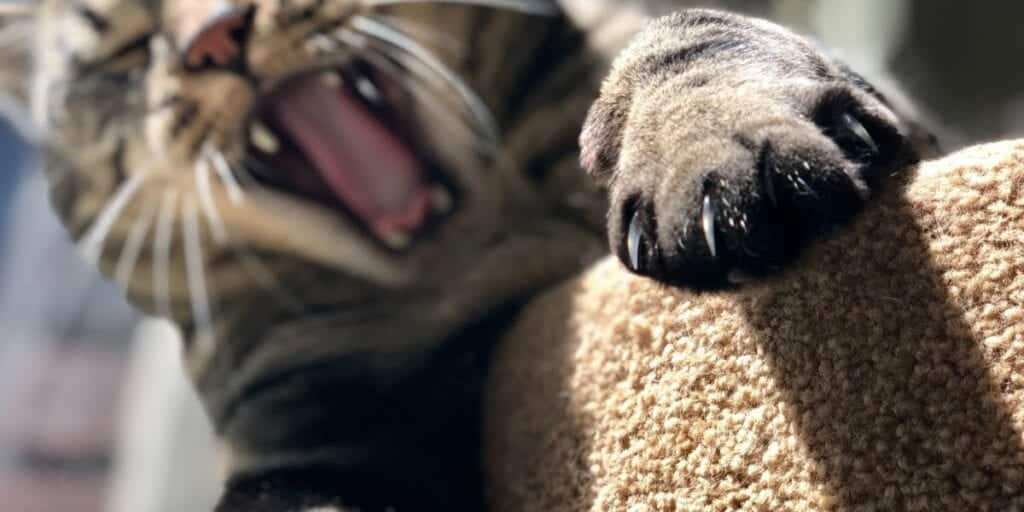Cats are natural predators, and with that status comes built-in weapons: Their claws.
And while domesticated cats don’t exactly need their claws (After all, there’s no need to chase down that bowl of dry food that appears every morning), they still have them. For many pet owners, these claws are seen as threats not to mice and birds, but to furniture and their own flesh.
The practice of declawing has fallen out of favor in recent decades, and is even discouraged by the American Veterinary Medical Association, but many pet owners still contemplate the practice.
Old Farm Veterinary Hospital does not perform declaw procedures. Here are 4 alternatives to keep your cat from scratching:
Training
Scratching is a natural behavior for cats, and you don’t want to entirely discourage your cat from practicing it. You can, however, teach your cat where and when it’s appropriate to scratch, and where and when it’s inappropriate to scratch.
First, encourage positive scratching behaviors by providing plenty of scratching posts, cat trees, and scratchers in a variety of materials and in all throughout your home. Praise your cat for proper scratching behaviors and, when they begin to scratch the furniture or other things they shouldn’t, redirect them to the scratching posts and give them praise.
You also need to make the surfaces you don’t want them scratching undesirable. Double-sided tape, aluminum foil, or spray deterrents work well to help your cat avoid the places you don’t want them to scratch.
If your pet scratches while playing, set them down calmly and walk away. Losing your attention will reinforce that you don’t like the behavior and make your cat less likely to scratch you in the future.
Nail Trimming
Sometimes, your pet scratches furniture and other surfaces because something about their nails is bothering them. Think of your furniture like a more expensive emery board: They’re seeking to sharpen or grind down their nails and are choosing something that looks as if it will help.
To avoid this reason for scratching, and to help decrease any damage from other scratching, keep your pet’s nails short.
Invest in a good pair of cat nail trimmers and learn how to clip your pet’s nails. If you don’t feel confident in trimming your cat’s nails yourself, your veterinarian or a cat groomer may be able to help.
Nail Caps
If training your cat not to scratch doesn’t seem to work, you can get vinyl nail caps to help decrease damage.
These smooth caps glue over your cat’s claws and come in a range of colors including clear, glitter, and glow in the dark. Most cats tolerate the nail caps well, but they may take some getting used to.
Each set of caps lasts 4 to 6 weeks and are shed naturally as your cat’s claws grow.
Feliway
Feliway is a synthetic pheromone available as a spray or room plug-in.
Typically used to get cats to stop urine marking or to decrease other aggressive behaviors, Feliway can help deter scratching behaviors.
Care for Cats in Frederick, MD
Your cat is an important member of your family, and you want to find the right team to help keep them healthy and happy for a long time. At Old Farm Veterinary Hospital, our team of experienced professionals can care for your cat throughout its life, giving them a long, happy life. Schedule an appointment today!



